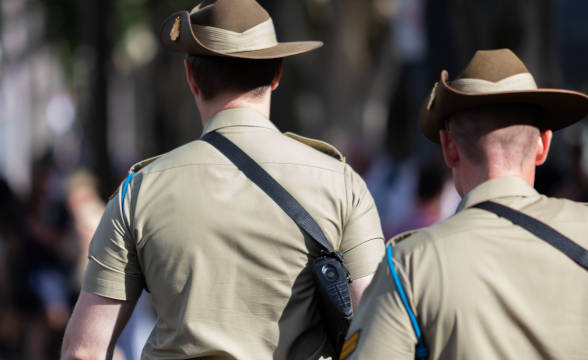Problem gambling can affect anyone and some people are at higher risk to develop that behavior. Australia’s Defense Force veterans are no exception, and the problem is exacerbated by how military service increases psychological stress.
Stats from the Study
A new study published May 25, 2022, on PLOS ONE, sheds light on how ex-military personnel is being afflicted by increased levels of problem gambling and lack of seeking help and developing deeper problems in their personal relationships as a result.
Military service and its effects on mental health have been widely researched and are not news. However, problem gambling is very rarely in the conversation when it comes to military veterans and this new study shows that it’s right up there with PTSD and depression.
A total of 13.4% of the participants in this study were found to have had gambling problems or were at-risk gamblers for the past year, indicating that ADF veterans were almost twice as likely to develop gambling problems, compared to civilians. 30.7% were suffering from depression or a related disorder in the past two weeks and 19.1% were found to be afflicted by PTSD in the past month.
Help-seeking was also found to be very low – just 2.1% of veterans with problem gambling were found to be willing to seek help. That’s almost twenty times lower than the average serviceman or woman seeking help for anxiety or depression.
Additional Context, Commentary
Another study from 2020, carried out by Phoenix Australia is in total agreement with these findings. Dr Sean Cowlishaw – senior research fellow at Phoenix Australia – is quoted in the research article saying:
“Given that in Australian society gambling has become quite ubiquitous, and that the impacts on the individual and their relationships can be severe, we need to improve our recognition of and response to this problem.”
Research into ADF’s veterans
However, single research cannot uncover all underlying inner mechanisms of such a complex psychological problem, let alone find solutions for resulting problems both on the individual and social levels. Dr Colishaw admits as much when saying that “further research is needed to help to improve initiatives to reduce the harm of gambling within the Australian military.”
9news.com.au spoke to Dr Olivia Metcalf – one of the co-authors of the study, who said that “gamblers are at risk of high levels of suicide, because of the devastating financial consequences of untreated problem gambling, and the same thing with homelessness,” while discussing how under-represented and under-studied the problem of gambling was with military veterans.
Given how taxing and traumatizing military service can be, especially for those who’ve fought in active combat, it comes as no surprise that veterans are highly susceptible to experiencing knock-on effects on their psyche even after leaving the military. PTSD, depression, alcohol and substance abuse are, unfortunately, dangerously frequently observed.
Dr Metcalf stresses that “If they’ve left the military and they’re paid out their leave or entitlements they might also have a large amount of money,” which can be the last ingredient for “a perfect storm” leading to seeking gambling as a form of self-medication.
Adding to the generally increased risk for problem behavior with the goal of lowering stress levels, problem gambling can be “a really vicious cycle,” as Dr. Metcalf puts it, because what starts as betting and playing games can lead to developing other mental health issues or exacerbating previously existing ones, further thwarting help-seeking efforts.


